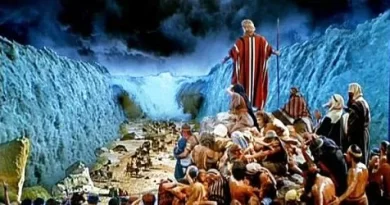The story of king josiah and the lost book – राजा योशिय्याह और खोई हुई किताब की कहानी
The story of King Josiah and the Lost Book is a profound narrative of rediscovery and religious reform, chronicled in the Bible’s Old Testament. Josiah, the King of Judah, is renowned for his commitment to reestablishing the worship of Yahweh and purging his kingdom of idolatry. His reign marks a significant period of religious revival and adherence to the Mosaic Law.
Josiah became king at the tender age of eight after the assassination of his father, King Amon. Despite his young age and the prevailing idolatrous practices in Judah, Josiah showed a remarkable inclination towards righteousness. He was mentored and guided by faithful advisors and priests who influenced his spiritual and moral development.
In the eighteenth year of his reign, King Josiah initiated extensive repairs to the Temple of Yahweh in Jerusalem, which had fallen into disrepair under previous kings. During these renovations, Hilkiah, the high priest, made a momentous discovery: a scroll of the Law, believed to be the long-lost Book of the Covenant, likely an early version of Deuteronomy.
The discovery was immediately reported to King Josiah. Shaphan, the scribe, read the contents of the scroll to the king. Upon hearing the words of the Law, Josiah was deeply moved and distressed. He realized the extent to which the people of Judah had deviated from their covenant with God.
In a dramatic display of repentance, King Josiah tore his robes and sought counsel from the prophetess Huldah. She confirmed that the words of the book were indeed from God and warned of impending judgment due to the nation’s disobedience. However, she also conveyed God’s promise of mercy towards Josiah, acknowledging his sincere repentance and humility.
Determined to lead his kingdom back to the ways of Yahweh, Josiah embarked on a vigorous campaign of religious reform. His efforts included.
Josiah gathered all the people of Judah, from the least to the greatest, and read the words of the book aloud. He renewed the covenant between the people and God, committing to follow the commandments with all their heart and soul.
Josiah ordered the destruction of all altars, idols, and high places dedicated to foreign gods. He eradicated the pagan priests and practices that had infiltrated the land, ensuring the exclusive worship of Yahweh.
Josiah reinstituted the celebration of the Passover, one of the most significant festivals in the Jewish faith, commemorating the Israelites’ deliverance from Egypt. This observance had been neglected for generations, and Josiah’s Passover was celebrated with unprecedented zeal and adherence to the Law.
He centralized worship in Jerusalem, reinforcing the Temple as the sole place for sacrifices and religious rituals. This move was aimed at consolidating religious practices and eliminating unauthorized local shrines and altars.
King Josiah’s reforms had a profound and lasting impact on the religious life of Judah. His unwavering dedication to the Law and the covenant with God set a high standard for future generations. Although his reforms did not permanently avert the eventual downfall of Judah, they represented a significant period of spiritual renewal and fidelity to Yahweh.
Josiah’s reign is often seen as a brief but shining moment of righteousness and faithfulness in Judah’s history. His story underscores the importance of scripture, repentance, and the power of determined leadership in bringing about spiritual and societal transformation.
The narrative of King Josiah and the Lost Book is a testament to the transformative power of rediscovering and adhering to sacred texts. Josiah’s devout response to the Book of the Law and his subsequent reforms highlight his deep commitment to God and his role as a catalyst for religious revival in Judah. This story continues to inspire faith communities to value their sacred traditions and pursue righteousness with fervor and integrity.
The story of king josiah and the lost book – राजा योशिय्याह और खोई हुई किताब की कहानी



